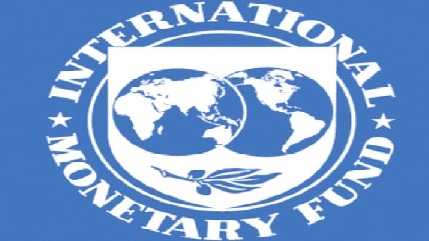
30 August 2022; MEMO: The IMF said, in a statement issued on Tuesday, following a 12-day visit to the Palestinian Territories that the local economy grew in 2021 by 7.1 per cent, and is expected to decline to 4 per cent in 2022.
According to the IMF statement, "growth is projected to decline to 4 per cent, driven by lower consumption and investment due to lower real incomes as prices rise, continued fiscal weaknesses and increased uncertainty related to Russia's invasion of Ukraine."
"Despite a difficult environment, the authorities contained the fiscal deficit. The fiscal deficit declined to 5.2 per cent of GDP in 2021 and 0.4 per cent of GDP in the first half of 2022. Going forward, the mission expects the deficit to rise in the second half of the year to reach 3.5 per cent of GDP at end-2022," added the statement.
The statement also noted, "With 2021 budget grants down 40 per cent from 2020, government debt (including arrears to suppliers and the Palestinian Pension Agency) increased from 34.5 per cent of GDP in 2019 to 48.4 per cent of GDP at the end 2021, or 20.6 per cent of GDP excluding arrears."
The Palestinian economy faces enormous challenges. In the medium term, the outlook is affected by the state of public finances, significant political, security and social turmoil, rising inflation rates and restrictions on movement and incomes.
READ: Israel main reason for Palestinian financial crisis
Most of the challenges facing the public finances are of a structural nature, "The fiscal challenges are largely structural in nature—the PA faces a high public sector wage bill and spends a considerable part of its budget in Gaza and East Jerusalem, but raises virtually no revenue in these areas or in West Bank areas under Israeli civil and security control, known as Area C."
Moreover, the IMF noted that "the PA and Israel disagree on the amounts of revenue that the latter should transfer to the former," known as the clearance funds, and Fund encouraged the Palestinians to make ambitious reforms over several years and called for close cooperation between the PA, Israeli government and donors.
"The PA needs to implement spending reform—centred on the wage bill, net lending and health sector reform—further broaden its tax base, and undertake structural reform to improve the business environment. Working together, Israeli and Palestinian authorities would need to resolve outstanding fiscal files to boost Palestinian revenue and ease Israeli restrictions on the movement of goods and people and on investment to unleash the economy's growth potential," said the IMF.




